Hometown History: Trailblazers C.T. Walker and R.A. Dent
AUGUSTA, Ga. (WJBF)- Do you ever drive down a road or past a building that was named after someone and wonder who it was?
NewsChannel 6’s Kim Vickers does and this month she took a look at two names you will recognize if you drive in downtown Augusta– C.T. Walker and R.A. Dent.
One was a minister and one was a politician. One born into slavery and the other into Jim Crow.
Reverend Charles Thomas Walker and Richard Algernon Dent made a huge impact on Augusta, the state of Georgia, and the world.
Walker was born into slavery near Hephzibah, Georgia in 1858 to Hannah and Tom Walker. His parents were founding members of the Franklin Covenant Church, a black Baptist church that was built before the Civil War. Tragically, Walker never knew his father.
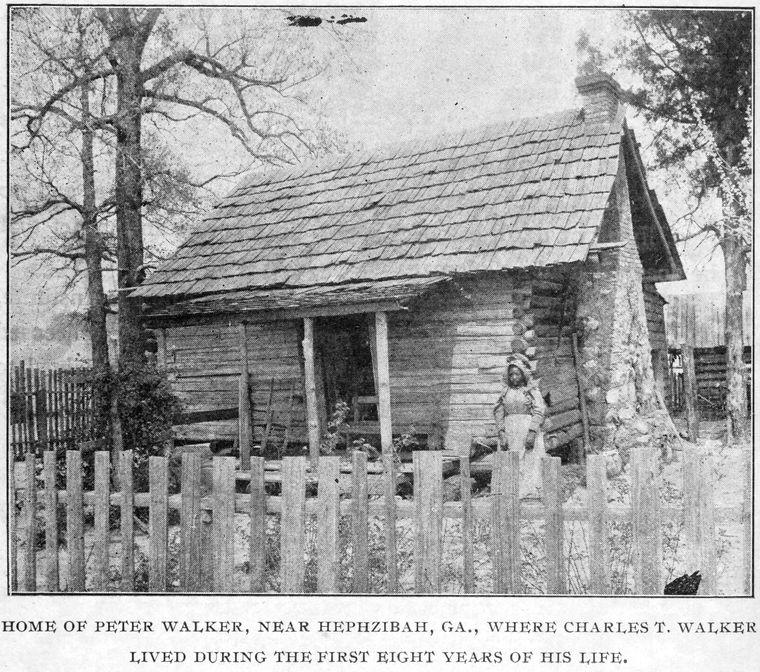
“Unfortunately his father dies before he is born, so he doesn’t have the opportunity to meet his father. But, because he’s a Walker, he is surrounded by a wide circle of very influential black men,” said historian, Joyce Law.
Hannah Walker died 8 years later, just one year after being set free from enslavement. Law said what she instilled in her children is the importance of education.
“Education becomes the key to progress, particularly after this period of enslavement, so that you can become literate and therefore a true grasp of freedom and independence and capability.”
Walker’s uncle, Nathan, was a mentor to him in his religious faith, helping him in his desire to be baptized. Nathan helped Walker further his education by enrolling him in the Augusta Baptist Institute which was located in the basement of Springfield Baptist Church.
Hometown History: Springfield Baptist Church
“He has the great opportunity to attend the Augusta Baptist Institute, which we now know as Morehouse. So, he’s one of this early cadre of professional men who become developmentally polished through the Morehouse Man’s spirit,” explained Law.
Walker only had $6 to his name when he started school, a little more than $155 today. He was very frugal with it, wanting to stay there as long as he could.
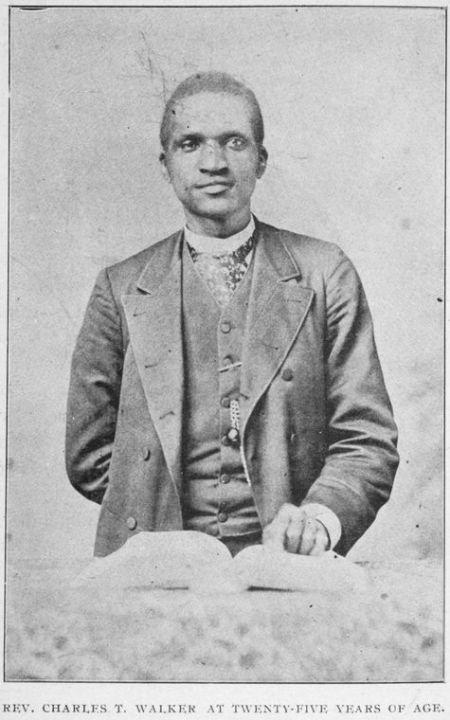
Eventually he ran out of money and had to leave. As he was walking out, he ran into Springfield’s Reverend, E.K. Love.
“The principal of the school sees him leaving and they were able to get him, what we call now, a scholarship, so that he can remain. And it’s probably one of the very best investments that the school has made,” Law said.
Walker graduated from Augusta Baptist Institute and was ordained as a minister. He became the pastor at his parents’ church, Franklin Covenant Church where he met and married Violette Franklin, an educator. They had four children, though only 2 lived to adulthood.
In 1885, he was called to Beulah Baptist Church. Two days later, he changed its name to Tabernacle Baptist Church.
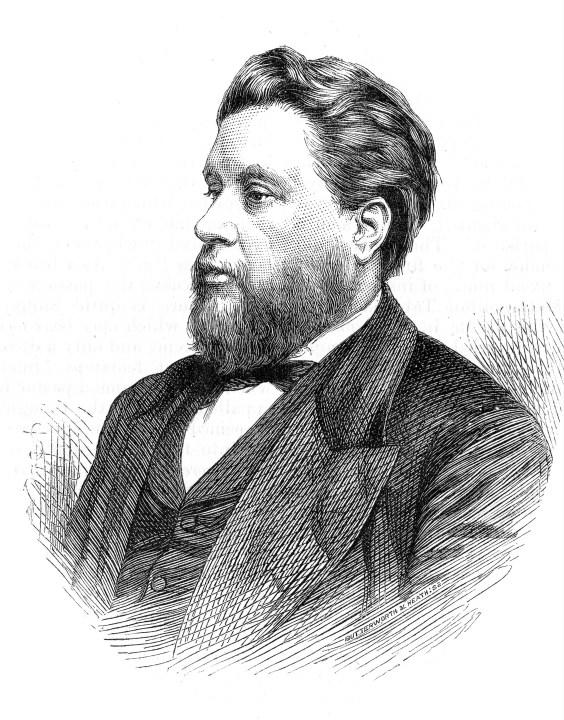
In 1891, Walker became the first African American, post slavery, to take a trip to the Holy Land. On the way he stopped in London to hear the great orator, Reverend Charles Spurgeon.
“Reverend Walker is given the opportunity to speak. And the audience goes ‘Mmmm. He’s the Black Spurgeon.’ And he keeps that affectionate moniker for the remainder of his life. So, someone may not know his actual name, but they know Black Spurgeon,” Law explained.
In 1899, Walker left Augusta when President William McKinley appointed him as a chaplain when the United States occupied Cuba after the Spanish American War. His service didn’t last long.
“He finds himself, that military life is not for him, and he accepts the pastorship at Mt. Olive Baptist Church,” said Law.
Walker spent two years at Mt. Olive in New York. After those two years, Walker found himself back in Augusta.
Hometown History: Dr. King’s final visit to Augusta
“He returns back to the church he has founded, which is now recognized as Augusta’s largest African American congregation,” Law said.
“Sure. A couple thousand from where…” replied Kim.
“Six,” Law confirmed.
“Six thousand. Wow,” said Kim.
Walker remained at Tabernacle for the rest of his time as a pastor.
His fame as an orator and civil rights activist brought him a great deal of respect from prominent people, not just in Augusta, but across the nation. People like Booker T. Washington, John D. Rockefeller and President William H. Taft traveled to Tabernacle to hear him preach.
Walker was known as an entrepreneurial spirit.
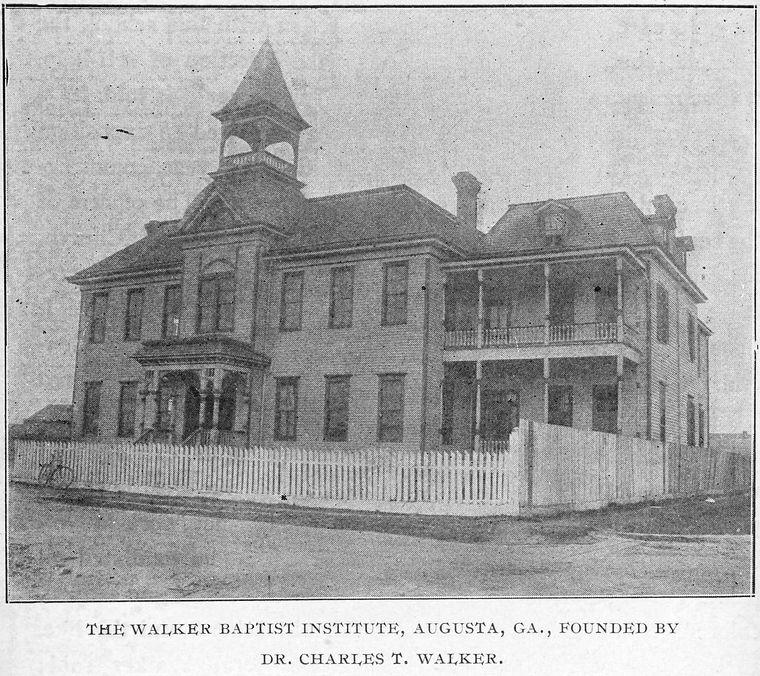
“Everywhere he goes, he starts something. He’s in LaGrange. He starts LaGrange Academy. In New York City, the Harlem YMCA,” Law said. “And then here in Augusta, the Negro Fair, the Tabernacle Old Folks Home. C.T. Walker Post is the very first African American military organization here, named in his honor.”
One of Walker’s lasting legacies was Walker Baptist Institute, a private boarding school for African American men.
“Education is really one of his foremost contributions to the development of the communities wherever he finds himself.”
Quite a few influential African Americans attended Walker Baptist Institute.
One of those was Richard Algernon Dent. He was born in 1905 in Keysville, Georgia to Benjamin and Annie Dent. He moved with his family to Augusta where he went to both the Walker Institute and Paine College.
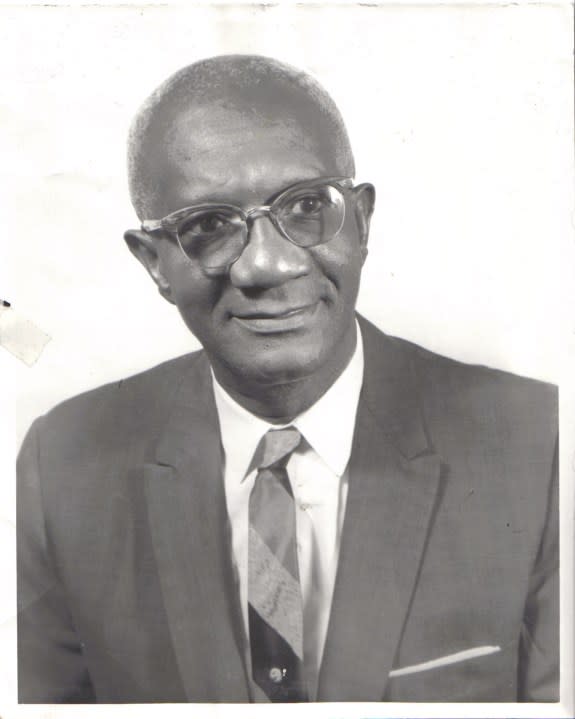
“And he graduates from Walker Baptist Institute in 1924, so he’s also very strongly imbued with the Walker spirit of being a champion and having an entrepreneur’s spirit in addition to being a second generation business owner,” said Law.
Dent also had a connection to Walker through his faith.
“One of the people who would have had an opportunity to see Reverend Walker in action was R.A. Dent whom he was baptized by and later becoming a deacon of the church,” she said.
Dent was very involved at Tabernacle where he was a lifelong member.
“He’s this great tenor, and he participates with the Magnat siblings in the Tabernacle Gospel Choir. Four years in a row, they bring home the banner from the State Gospel Choir Competition. So now the senior choir here at Tabernacle Baptist Church is named in his honor,” Law said.
As an adult, Dent owned a successful floor covering business for 50 years.
In 1966, he decided to try his hand at politics and he was elected to the Georgia House of Representatives.
“R.A. comes to become a state representative. Almost 100 years after Thomas P. Beard, as I guess the first African-American representative is ejected out of the Georgia assembly,” explained Law. “And so this is part of the great legacy that it took that long of a period to have an African-American to being elected back to the Georgia Assembly.”
Dent served in the Georgia House of Representatives for more than 15 years, resigning in 1982.
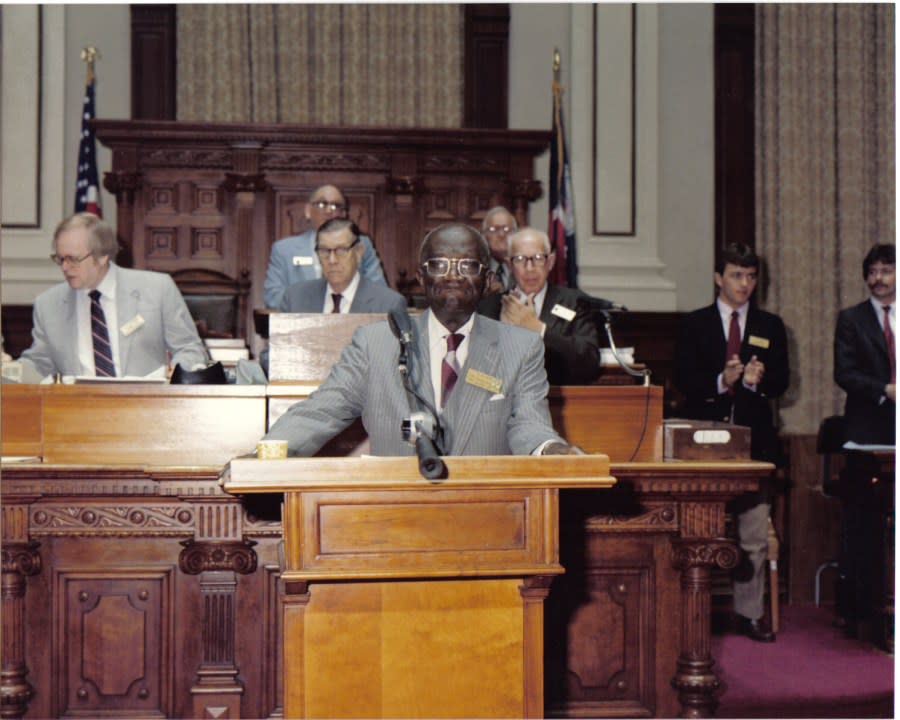
During that time he accomplished a lot for the state, known as a great orator who could work across the aisle to get legislation passed.
“So while he was in office, there were many, many…the Equal Rights Amendment goes forth. We have Georgia’s Historic Preservation Act. It becomes effective in 1978, that replicates the federal act for historic preservation. So, now we see a lot of changes that are coming about,” Law said.
Dent had a reputation for being a kind, generous and nurturing man. Many who knew him say he was like a father to them, including former Augusta mayor, Ed McIntyre, who gave him the nickname “Papa” Dent.
That reputation helped in his business and his political career, and garnered a great deal of respect from his colleagues.
“Representative Dent is one of three African Americans whose picture is placed in the Georgia Dome. We have his roommate, Neil Turner, as one of the first representatives and the first African-American representative in a Georgia assembly and also one of the founders of the Republican Party here in Georgia. Ms. Lucy Craft Laney, prominently internationally known educator, and then our agent who become the first African American state representative from Augusta, Richmond County since Reconstruction Time,” said Law.
Hometown History: Hopelands Gardens and Rye Patch
Both men had such an impact on the community that they were honored by having roads named for them. R.A. Dent Boulevard and Laney Walker Boulevard.
Erick Montgomery with Historic Augusta said that Walker’s huge influence is why his name is on so many things.
“He was so well esteemed, that even in the early 20th century, they named a school after him. C.T. Walker Traditional Magnet School. Laney Walker Boulevard- the Walker part of that- he was considered worthy of having half of that name named after him. The neighborhood is known as the Laney Walker neighborhood and the National Register Historic District is known as the Laney Walker Historic District,” he explained.
In 2009, Historic Augusta named the house Walker lived in for the last 16 years of his life, an endangered property.
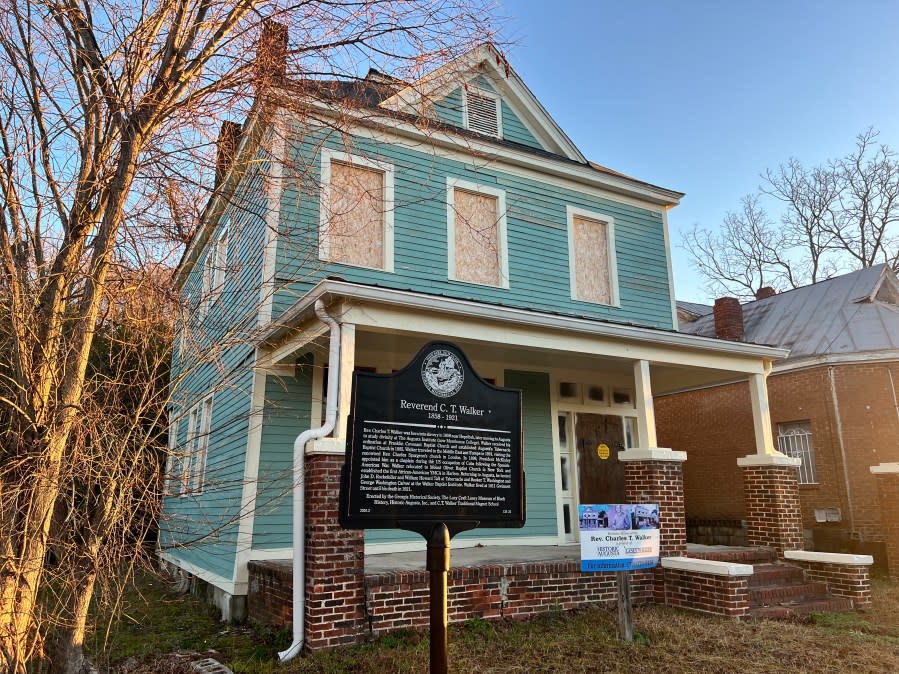
Located on Laney Walker Boulevard, not far from Tabernacle Baptist Church, it was in serious disrepair with parts of it condemned.
In 2016, the Augusta Historical Society bought it with the intention of stabilizing it and selling it.
Montgomery explained that buying the property was a long and complicated process. They had to find the heirs to the property and convince them to sell.
“Finally, there were 19 heirs that were part of this process. So finally, all of them signed quit claim deeds and we were able to buy it,” said Montgomery.
Over the next six years Historic Augusta worked to stabilize the structure.
“We replaced the roof. We worked on the front porch, which was actually condemned by then. The house was sagging so we worked on the foundation to stabilize that. We repaired the siding. We painted it,” Montgomery explained.
In 2022, Historic Augusta sold the C.T. Walker House to the Augusta Land Bank Authority as part of the revitalization of the Laney Walker neighborhood. Montgomery said preserving historic places to remember influential people is important.
Hometown History | WJBF: 70 years of excellence
“I mean, I think Walker certainly worthy of being remembered. And that’s why we inserted ourselves into into this. It-he- needed to be remembered. His house needed to be saved.”
The C.T. Walker House now has a historical marker. It was erected 4 years ago due to efforts by C.T. Walker Magnet School and several historical societies.
That’s just part of your Hometown History.
Photojournalist: Dania Alawir.
For the latest news, weather, sports, and streaming video, head to WJBF.

